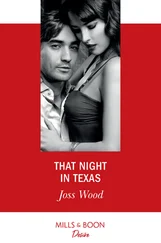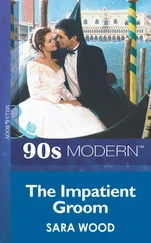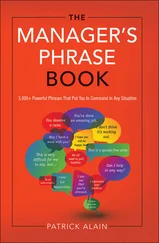J. Powers - Wheat That Springeth Green
Здесь есть возможность читать онлайн «J. Powers - Wheat That Springeth Green» весь текст электронной книги совершенно бесплатно (целиком полную версию без сокращений). В некоторых случаях можно слушать аудио, скачать через торрент в формате fb2 и присутствует краткое содержание. Год выпуска: 2000, Издательство: NYRB Classics, Жанр: Современная проза, на английском языке. Описание произведения, (предисловие) а так же отзывы посетителей доступны на портале библиотеки ЛибКат.
- Название:Wheat That Springeth Green
- Автор:
- Издательство:NYRB Classics
- Жанр:
- Год:2000
- ISBN:нет данных
- Рейтинг книги:5 / 5. Голосов: 1
-
Избранное:Добавить в избранное
- Отзывы:
-
Ваша оценка:
- 100
- 1
- 2
- 3
- 4
- 5
Wheat That Springeth Green: краткое содержание, описание и аннотация
Предлагаем к чтению аннотацию, описание, краткое содержание или предисловие (зависит от того, что написал сам автор книги «Wheat That Springeth Green»). Если вы не нашли необходимую информацию о книге — напишите в комментариях, мы постараемся отыскать её.
Wheat That Springeth Green — читать онлайн бесплатно полную книгу (весь текст) целиком
Ниже представлен текст книги, разбитый по страницам. Система сохранения места последней прочитанной страницы, позволяет с удобством читать онлайн бесплатно книгу «Wheat That Springeth Green», без необходимости каждый раз заново искать на чём Вы остановились. Поставьте закладку, и сможете в любой момент перейти на страницу, на которой закончили чтение.
Интервал:
Закладка:
In any case, whether or not Paddy was picking up the tab was beside the point, as Joe came to see his own situation — as that of the rich young man in Scripture who, when told by Our Lord to sell what he had and give the proceeds to the poor, had taken a powder. Joe could say that he wasn’t rich now and never would be, would only be fairly well off, and that he couldn’t dispose of what he didn’t have yet, but not that he couldn’t declare himself now by intention, by desire. That was what counted, and counted for just as much, in the eyes of God and the Church, when to act materially was impossible — otherwise, religion, for most people, would be a spectator sport.
So what, in the matter of his inheritance, was his intention, his desire?
He didn’t know and didn’t, since his folks would have to die first, like to think about his inheritance, except, maybe, as a possible deterrent to some future archbishop. (“Watch it with old Joe, Your Excellency. He might retire on you. He’s loaded, you know.”) The truth was, he wasn’t interested in money, or even in the things it could buy, apart from food and drink. The truth also was, since hearing Lefty’s prediction he felt closer to the poor capitalists at the Athletic Club, some of them being bled white by greedy ex-wives and greedy radical offspring. He had no plans to cash in his annuity (without which he’d have to move back to Trinity) and give the proceeds to the poor. Was this to say that he couldn’t readily accept the prospect of doing without his inheritance? No, only that he couldn’t readily accept the prospect of becoming Director because “Big Albert just wants somebody that’s not a radical and can pick up the tab.”
“Odd you should mention the tax angle,” Joe said to Lefty some nights later, in the Robin Hood Room. “Somebody was telling me about it the other night. [“It was me.”] Whoever it was [“It was me, Joe”] said I should get the folks to make their moola over to me now [“But not all of it”], but not all of it. I don’t want to leave ’em penniless. [“Right. Joe, I was the one talked to you the other night. That was my advice.”] That so? So many give me their advice these days. Guys I haven’t seen for years drop in at the office, or stop me on the street, and give me their advice. The word’s going around — I don’t know why — I’ll be the next Director. [“It figures.”] It figures, they say. They’re all happy for me. [Lefty nodded.] Pleased, you might say, as Punch. [Lefty nodded.] The problem is — how do I tell the folks? I can’t just say, ‘Hey, folks, Guess what? I’m your — correct me if I’m wrong — your only child, and it looks very much like I’ll be the next Director of Archdiocesan Charities, but if so I’ll need your moola — but not all of it.’ Afraid they may not take it so well. [“I see the problem, Joe. By the way, how are the folks?”] Fine. In Florida now. [“Good for them.”] Hate to do it, but think I’d better go to the Arch — ask his advice. [“About what, Joe?”] Come right out and tell him I have a pretty good idea what’s in store for me [“No, no”] and know why — that he just wants somebody that’s not a radical and can pick up the tab. [“Joe.”] But not yet, I’ll have to tell him, not until the folks make their moola over to me — not all of it. [“Joe.”] Afraid the Arch may not take it so well. He may want to talk to the folks himself. [“Joe.”] Or he may want you to do it. [“Come on, Joe.”] Actually, Father ”—what Joe called Lefty when they weren’t getting along—“it might be better if you both did, if you went down to Florida together, at my expense, of course.”
“ Father ”—what Lefty called Joe when they weren’t getting along—“here’s how I look at it. ‘From each according to his ability, to each according to his need.’ But I can take a hint. You don’t want to talk about it, right?”
“Right. No dessert for me.”
“Drink?”
“No. But you go ahead.”
“No, thanks.”
So they rose from the table sooner than they might have, one man saying thanks when the other picked up the tab. And then from one man, “Change your mind?” and from the other, “Well, all right.” So they made for the Little John Lounge, one man smiling and nodding at diners along the way, the other ignoring them, until a woman, apparently sober, barked:
“Are you two father and son?”
Lefty stopped to talk, but Joe kept going, feeling sorry for Lefty for looking so old, until the woman howled:
“I knew it!”
Joe disappeared into the dimness of the Little John Lounge, feeling slandered as a priest and a person, a short one. Lefty, as he said, saw no harm in agreeing with people as long as nothing’s at stake, and Joe had once heard him agreeing with some people, the kind who might think this, that football should be the national game. But what Lefty had just done was different, Joe thought, and he wasn’t having any when Lefty sat down beside him and tried to interest him in an appeal that had gone out from Charities, producing a copy of it.
“Joe, when you’re Director, I hope you’ll do something about the letterhead.”
“O.K., Father . What’d you tell that woman?”
“What woman, Father ?”
“You know what woman. Tell her we’re Protestants?”
“Why would I tell her a thing like that?”
“She didn’t ask what we were?”
“No.”
“O.K., Father . What if she had asked what we were?”
“ Father , that’s a hypothetical question, Joe.”
Joe, silent, waited for Lefty to answer the question.
“Hell, I don’t know. Greek Orthodox maybe, or that I was a late vocation.”
“I see.” But Joe wasn’t (as Lefty appeared to think) through with him. “O.K., Father . Why’d you say the other?”
“What other?”
Joe couldn’t bring himself to say it. “You know what other.”
“Father and son? Hell, I didn’t say that. She did. I just went along with her. An old broad like that.”
Marcia (the waitress) came for their orders.
When she’d gone, Lefty produced the appeal again. “Fat cats and tame clergy,” he said, speaking of the Advisory Council whose names were on the letterhead. “And two of ’em dead. No balance, Joe.”
“When I’m Director, I’ll have your name on the letterhead — for balance.”
“You mean that?”
Joe didn’t, or anyway hadn’t, but Lefty looked so hopeful . “I don’t see why not,” Joe said.
“Well, I’ll be damned.”
Marcia brought their orders.
“Here’s to you, Joe.”
“And you, Lefty.”
After that, things gradually got out of hand. At one point, Lefty bought everybody a drink and put it on Joe’s tab for the time being, which Joe didn’t mind. At another point, while having a drink with a couple of college professors and their wives, Joe heard Lefty agreeing with them that “puritanism” might have figured in his vocation and might indeed color his thinking even today, which Joe did mind. “Some people,” he said, “might indeed give up what they think of as thinking.” At a later point, Lefty came back from the men’s room with “Buzz”—somebody he either had or hadn’t met before — who offered to give Joe an estimate on his new letterhead, Lefty producing the old one, now revised (in the men’s room?), his name written in, Paddy’s and those of the deceased crossed out. Paddy, thanks to Joe, was restored to the new letterhead first as a full member of the Advisory Council (not just an honorary one, as proposed by Lefty) and then as Director — in a version for immediate adoption because the old letterhead looked like hell with the names of the deceased on it and lacked balance, this crash version proposed by Lefty and seconded by Buzz and Marcia. That version was amended to show Joe, who’d had no title before, as Assistant Director. That version was amended to show Joe as Director and Paddy as Archdirector. At a later point — the last point that Joe clearly remembered — Buzz said he hoped in time to be doing all the Archdiocese’s printing jobs, including Sunday envelopes, now shipped in from Indiana, to which Lefty had said, “I don’t see why not.”
Читать дальшеИнтервал:
Закладка:
Похожие книги на «Wheat That Springeth Green»
Представляем Вашему вниманию похожие книги на «Wheat That Springeth Green» списком для выбора. Мы отобрали схожую по названию и смыслу литературу в надежде предоставить читателям больше вариантов отыскать новые, интересные, ещё непрочитанные произведения.
Обсуждение, отзывы о книге «Wheat That Springeth Green» и просто собственные мнения читателей. Оставьте ваши комментарии, напишите, что Вы думаете о произведении, его смысле или главных героях. Укажите что конкретно понравилось, а что нет, и почему Вы так считаете.












